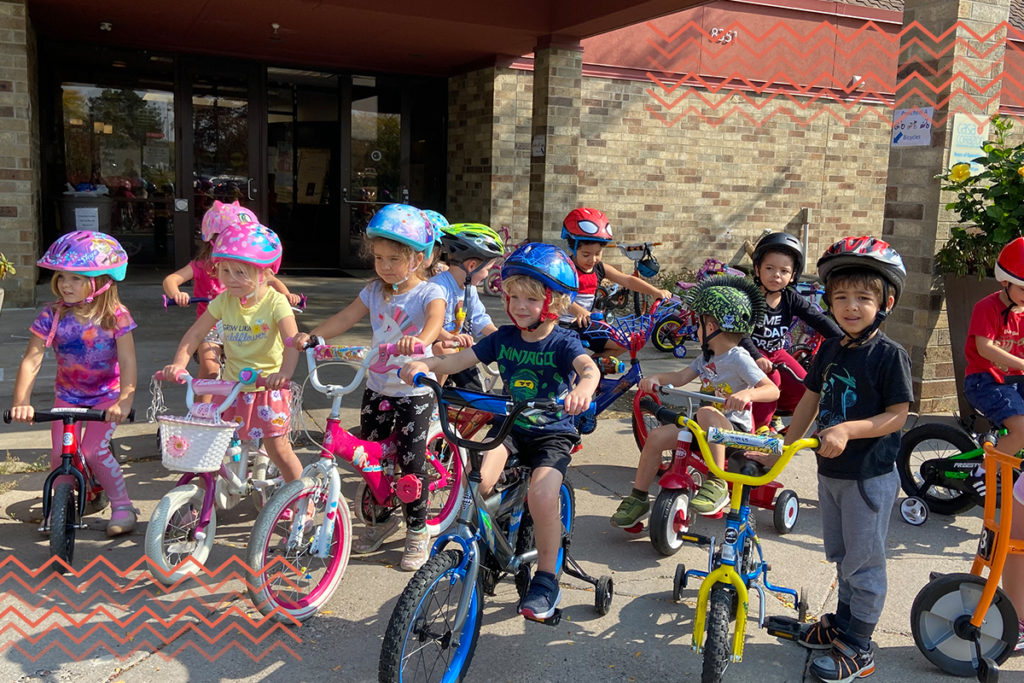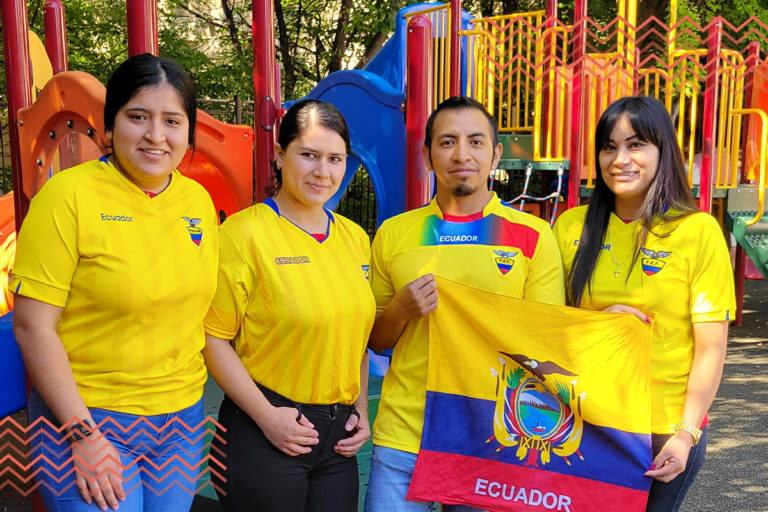How to Teach Kids to Lose Gracefully: Practical Tips for Building Emotional Resilience
We live in a winning oriented culture. Children pick up on these social cues from a young age. They, even from early childhood, can feel pressure to always win. This can make losing a profound emotional experience for a young child. It’s important to teach children how to lose gracefully from the get-go. Read on to learn how teaching children how to lose can build resilience in a competitive world.
Why Learning to Lose Matters for Childhood Development
There are many emotional and social benefits that come from learning how to engage in competition with a healthy mindset. Children who learn to handle losing appropriately develop coping skills that stay with them throughout life. Learning to compete gracefully, regardless of outcome, is a way of building both empathy and resilience in children.
Research shows that sports are an especially good venue for building resilience, fostering empathy, and establishing respect among peers. Learning to play fair and control emotional reactions to loss benefits children in athletics, academics, and personal relationships, throughout life.
How to Teach Your Child to Lose Gracefully
There are actionable ways to help your child build the resilience they need to face loss and failure without breaking down. In fact, the more comfortable a child is with competition – the possibilities of losing or winning – the more equipped they are to succeed. Here are some concrete strategies parents can use to help their kids lose more gracefully:
Normalize Losing & Mistakes
First, it is important to establish that losing happens to everyone. Young children may become very upset from even small mistakes or failures. This is normal. However, the answer is not to create an environment in which failure is impossible. Instead, it’s best for parents to discuss how losing can be a way of growing and that all people make mistakes, both kids and adults.
Using a loss as a lesson promotes a growth mindset in their children rather than a fear of failure.
One way to practice losing is to play a simple board game together, like “Candy Land” or “Chutes and Ladders.” When your child lands on a chute and falls behind, acknowledge how that feels: “Wow, you slipped down that big chute. That’s disappointing, isn’t it?” Then gently remind them, “We’ve all been there—sometimes we win, sometimes we lose. It’s all about having fun anyways.” This kind of discussion both validates their negative emotions around mistakes while de-emphasizing outcome.
Model Good Behavior
Parents’ behavior sets an emotional tone and precedent for children. Modeling healthy competition and losing behaviors can help kids understand that winning and losing are not the most important parts of life.
You might let your child see you lose at a game — like a card game or a video game. You can model healthy coping by discussing the loss openly. For example, you might say: “Oh, I lost this round. What a bummer! It was still a really fun game. Next round, maybe I’ll try a different strategy.”
You might also discuss with your child the lessons you have learned from failure over the course of your life. You might demonstrate how those failures have led to unexpected positive outcomes and emphasize the importance of moving on from loss. This helps kids put their losses and mistakes into a broader context. They aren’t the end of the world!
Focus on Effort, Not Outcome
Teach children that it’s fulfilling to try their best, regardless of the result. Parents should not praise wins, but other aspects like effort, creativity, and teamwork. This reinforces intrinsic motivation rather than extrinsic rewards which is much more developmentally healthy in the long run. When we emphasize something like teamwork, we are telling our children that empathy and respect are more important than a loss or win.
If your child is practicing a new skill — like learning a song on the piano — praise their effort instead of focusing on whether they performed it perfectly. For example, you might say, “I’m so impressed that you practiced every day this week! I can tell you’re improving.”

Practice Through Play
Playing board games or sports at home with young children helps them learn sportsmanship in a controlled setting. When playing with your children, demonstrate and narrate healthy emotional responses to the competition. You should de-emphasize the outcome of these games to children and focus instead on being present and having fun.
This doesn’t mean always letting kids win either. Rigging the game teaches them, implicitly, that losing is always bad and they should not lose. This places more emphasis on winning in the end.
Guide Your Child Through Self-Reflection
After your child makes a mistake or loses a game, guide them to self-reflect. It is important to first validate any negative emotions they have around the loss. Once they are calm, you might try asking your child reflection questions like, “What did you learn?” or “What could we do differently next time?” These lines of questioning promote a growth-mindset —helping them view individual losses as part of an overall path to success.
This moment of reflection also allows them to regain some mental control over the situation which can lessen the emotional effect of losing. It gives them some smaller, more manageable aspects of their own actions to focus on, rather than an outcome they cannot control.
Teaching Your Child to Win with Grace
We have talked a lot about losing so far, but it’s just as important to teach your child how to win with grace. De-emphasizing outcomes in favor of sportsmanship and fun includes de-emphasizing winning. In healthy competition, striving is rewarded, as is sportsmanship, while winning is not considered the end-all-be-all.
Learning to win gracefully also helps young children compete better. Winning gracefully is a practice of empathy. It requires kids to consider how their peers may feel after a loss and to be respectful to their competitors. It requires also, a recognition that the roles can be reversed. This is a great time for young children to practice the golden rule: Treat others how you would like to be treated.
Acknowledge Others’ Efforts
Part of winning well is showing respect to your opponent. You should encourage children to recognize the praise-worthy aspects of an opponent’s game like good strategy or strong performance.
For example, after your child wins a round of soccer against a friend you might discuss with them a positive element of their opponent’s game play, like how well the other child blocked a shot. You should encourage your child to communicate this praise to the friend about their performance: “You had some really good blocks — let’s play again soon!”
Practicing sportsmanship helps kids build healthy relationships with their peers, even in competitive situations.
Avoid Gloating or Bragging
Don’t allow your child to brag and gloat after a win. If you find that a young child is gloating, help them reflect on how they would feel if the roles were reversed. Winning kindly makes for more positive social connections.
Parents should constructively correct negative behavior if it happens. For example, if your child starts boasting about beating a sibling in a video game, remind them how they’d feel if someone boasted at their expense. You might give them an alternative, positive script to use instead like, “That was a fun game. Next time, I’ll show you how I did that trick so you can try it too.”
Celebrate Team Success
Research shows that sports provide a good model for young children learning how to engage in competition while encouraging teamwork and prosocial behavior. Sports help your child to view themselves less as an individual and more as a teammate. This lessens both the emotional pain of losing and teaches them to share credit with teammates, teachers, and others who will help them succeed in life.
Building healthy relationships with a sports team is a great way for kids to gain social skills and build resilience. A healthy team, led by caring coaches and parents, will teach empathy, gratitude, and sacrifice. Being part of a team helps kids understand their role in part of a larger community too, which is a lesson that stays with them for life.

Common Pitfalls & How to Avoid Them
Teaching a young child how to compete with a healthy mindset is easier said than done. There are often big emotions involved in this process: sadness, guilt, and hurt feelings. These can be difficult to navigate as a parent. There are some common pitfalls in this process. Read on to learn how to avoid them.
Overemphasis on Winning
We all want our children to be successful, but overloading children with pressure to win usually does not help them succeed in the long run. Success requires risk, which means it also, at times, requires mistakes and failure. Parents putting too much pressure on their child to win can create fear of failure. This fear keeps them from trying to be their best self. If you find yourself urging on a win a bit too forcefully, try instead praising one smaller more specific skill or effort you have seen your child make in the game.
Punishing or Belittling Kids for Losing or Poor Performance
Kids should not be reprimanded for losing. Negative reinforcement around performance from parents can harm a young child’s sense of self-esteem. You might try turning a negative reprimand such as “What was that shot?” into an opportunity for constructive criticism like “Next time, try aiming more for the corner of the net.” This shifts the focus to an actionable suggestion that can lead to improvement instead of a general negative feeling about the mistake.
Comparing Your Children to Others
Conclusion
Helping your child accept the outcome of competition is a big task. We at Casa de Corazon hope that these suggestions have been helpful. Our preschool centers provide many opportunities for young children to engage in healthy competition with peers. Part of our core value is to help build healthy relationships and teach life skills for children in a responsible, healthy, and intercultural environment. Teaching kids to win and lose with grace is a big part of that! Request a tour today.
Comparison is the thief of joy. When your child loses, try to avoid comparing them to a teammate or sibling who has performed better than them. This sort of comparison can damage self-confidence. Focus instead on individual progress — comparing a child’s past performance to their current. Celebrate your child’s progress without comparing it to that of peers.



